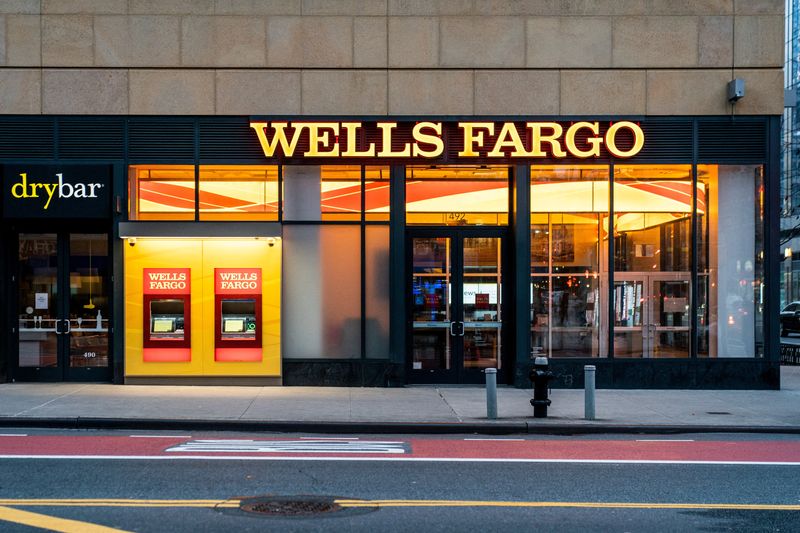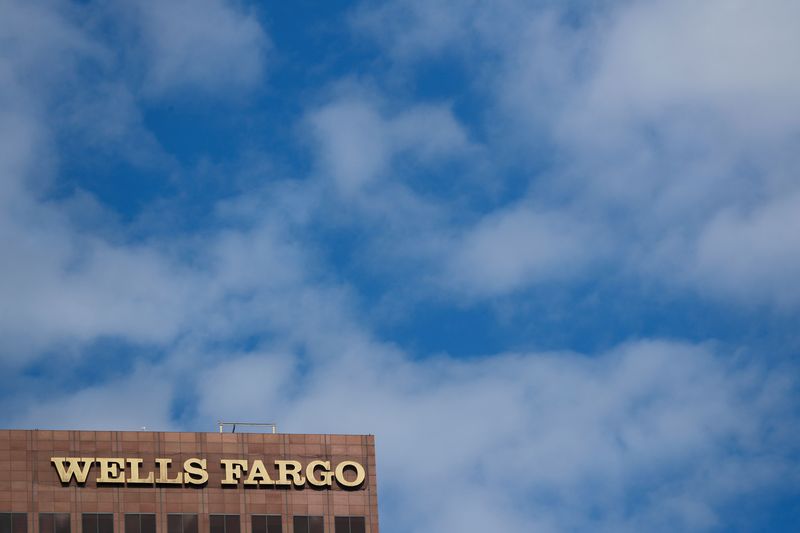By Douglas Gillison
(Reuters) - Over the past decade, Wells Fargo (NYSE:WFC) has tripled donations to groups focused on influencing state elections as the retail banking giant tries to sway local level policymaking, according to public data and a bank spokesperson.
While the billions of dollars Wall Street and tech moguls have poured into Tuesday's federal elections have dominated headlines, Wells Fargo's increased local spending highlights how state politics has become more important for major companies.
Banks and other corporations are facing increasingly active and in some cases hostile state officials, some of whom want to curtail what they call "woke capitalism" - corporate policies on hot-button issues such as guns, fossil fuel lending and diversity.
In the 2024 election cycle through Sept. 30, Wells Fargo gave a total of $704,300 to three Democratic and three Republican organizations known as 527s that are focused on electing governors, attorneys general and state lawmakers, according to data from the Center for Political Accountability (CPA), a non-partisan transparency organization.
Those donations, split evenly across the parties, were up more than 200% on the 2014 cycle, according to the Washington group.
527 organizations are advocacy groups that can raise unlimited corporate money to promote candidates for office. The six tracked by CPA, none of which responded to Reuters requests for comment, receive the lion's share of corporate money focused on state politics.
A Wells Fargo spokesperson said the bank's engagement with the 527s focuses on policymaking and that it ensures its donations are only used for operational and administrative purposes rather than to support or oppose candidates for office.
"Like many companies, Wells Fargo regularly engages with elected officials at the local, state, and federal levels to discuss public policy solutions that are important for our customers and the communities we serve," the spokesperson said, without commenting on any specific policies.
Bank of America, another retail banking giant, has kept its donations to the same six groups steady at about $400,000 per cycle since 2014, while Citigroup (NYSE:C)'s fell about 60% in that period, according to CPA.
A BofA spokesperson said the bank does not allow donations to be used to support or oppose electoral candidates. Citigroup declined to comment.
In 2023, JPMorgan used money from employee-funded political action committees to pay membership dues for four of the same six 527 groups - spending $101,500 all told -- but does not donate corporate funds, according to the bank's website.
Whereas narrowly divided Washington has been beset by partisan gridlock, state houses often tilt heavily in one direction, giving local legislators broad power to set policy.
Voters in 44 states will choose 5,808 state lawmakers on Tuesday, accounting for 78% of all legislative seats nationwide, according to the National Conference of State Legislatures. There are also 11 gubernatorial races.

Bruce Freed, CPA's co-founder, said 527 organizations have over the past decade transformed state-level politics -- where matters such as congressional districting and reproductive rights are decided -- helping drive the partisanship that now characterizes the conduct of state attorneys general and American national politics more broadly.
"When a company gives to a 527, that is used for political purposes," he said. "They can say whatever they want but the fact is the money is used for election-related spending."
